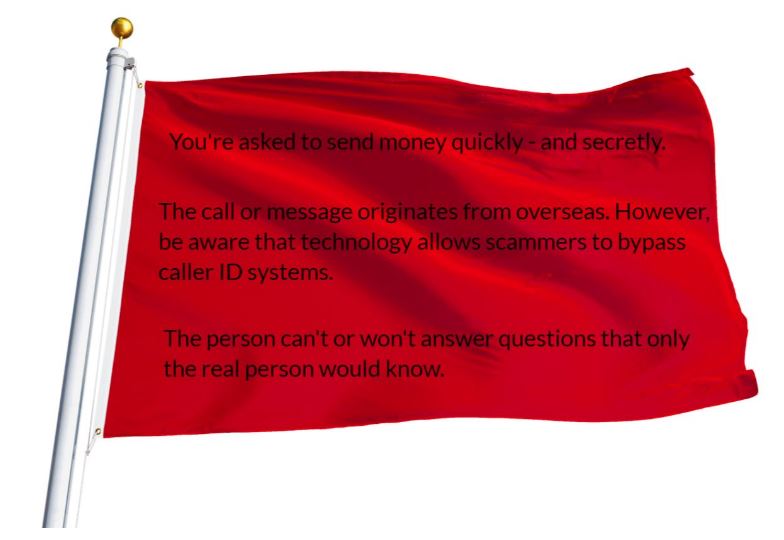Grandparent Scam
The “Grandparent Scam” targets the elderly. If your grandchild called seeking help, would you send money? In the “Grandparent Scam,” cons are posing as relatives to try and convince elderly victims to wire cash to help pay for emergency car repairs, medical bills – or even post bail. Here’s how to detect a scam:
Don’t fill in the blanks for the scammer. For example:
Caller: “Hi, it’s your granddaughter.”
Grandparents: “Which one?”
Most likely, the con will then hang up.
Do whatever is necessary to confirm the real relative’s whereabouts. Call your grandchild’s home, school, or work.
Don’t send money unless you have verified that your relative is really in trouble. If a caller asks for your bank account number or urges you to send money via Western Union or MoneyGram for any reason, that’s a good indication of a scam. Cons prefer wire transfers because they are fast, there are transfer agents in most communities and funds can be picked up in multiple locations.
Below are some red flags and tips to help avoid falling prey to this scam. Scammers are tough to track down, so please continue to get the word out to your family and relatives before they become victims.
Any time someone asks you to send money by Western Union or MoneyGram, it’s invariably a scam. You might also be asked to send a check or money order by overnight delivery. Con artists recommend these services so they can steal your money before you realize you’ve been cheated. Money transfers can be picked up at any service location as long as the thief/recipient has the confirmation number.
Avoid volunteering information over the phone. Always ask the caller to identify themselves by name and ask individuals who contact you to provide information that only you and people close to you would know.
Call the friend or relative claiming to need your help to confirm whether the story is true, using a phone number you know to be genuine. If you aren’t able to contact the person, call other friends/family members to confirm the situation.
Refuse to send money via wire transfer.
If you have wired money and it hasn’t been picked up yet, call the wire transfer service to cancel the transaction. Once the money has been picked up, there is no way to get it back.
Trust your gut!
Warn loved ones about this scam and other money-wiring schemes. Elderly residents continue to be robbed because they have not heard the warning. If you haven’t talked to the seniors in your life about this scam, now is the time.


